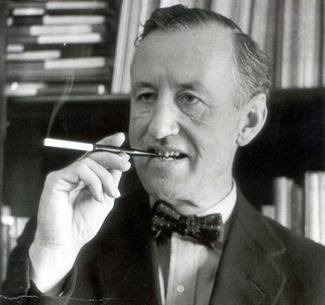Shaken and Stirred
“The first law for a secret agent is to get his geography right.” ~ Ian Fleming, The Man with the Golden Gun
In her hit 1964 song, British singer Petula Clark suggested that when “life is making you lonely/You can always go downtown.” Another antidote to the blues is a tropical paradise-especially one that encompasses literature and history. Few resorts offer the pedigree of Jamica’s Goldeneye, a Caribbean Garden of Eden.
If the island’s palm trees could talk, they would reveal a riveting tale. The first inhabitants were the Taino Indians who christened their land Xaymaca that translates to “land of wood and water.” (English words that derive from their Arawak language: hammock, hurricane, tobacco, barbeque, and canoe.) The first Pirate of the Caribbean, Christopher Columbus, claimed the island for Spain who exploited it to enrich the royal coffer. The next conqueror-the British- transformed Jamaica into a huge sugar plantation that became the nexus of the slave trade. The imperialist interlopers lived in magnificent plantations, imbibed the local rum, and engaged in sex with their enslaved workers. Autonomy arrived in 1962, when Jamaica declared its independence; it retained its status as part of the British Commonwealth.
Ian Fleming, the author of James Bond, arrived at this bouillabaisse of sugar, slavery, and sex where he left his literary mark. How the quintessential English sophisticate ended up in Jamica, then an outpost of the British Empire, had its genesis in his wartime experience. In 1943, Her Majesty’s Secret Service dispatched Colonel Fleming to a conference in Jamaica to investigate the presence of Nazi U-boats in the Caribbean in a mission codenamed Goldeneye. Seduced by “the peace and silence and cut-offness from the madding world” when his plane departed from Kingston, the dashing intelligence officer declared, “I have made a great decision. When we have won this blasted war, I am going to live in Jamaica and lap it up, and swim in the sea and write books."
Three years later, Fleming made good on his vow when he found sanctuary in the banana port town of Oracabessa, (Spanish for Golden Head), Bay. He telegraphed the local realtor, “PRAY PAUSE NOT. IAN.” For his retreat that nestled the ocean-where he skinny-dipped-Fleming purchased fifteen acres on the site of a former donkey track. On his desk blotter, Ian sketched a picture of his dream bungalow he christened Goldeneye. In a 1964 Playboy interview, Fleming explained the name originated with Carson McCuller’s novel, Reflections in a Golden Eye, and the name for his wartime operation. The code name 007 derived from a prefix that had appeared on World War II British intelligence files. He christened his dapper spy “James Bond” after his ornithologist neighbor. The protagonist was the Walter Mitty wish fulfillment of the writer though they shared the commonalities of gambling, golf, and women Dr. No, Live and Let Die, and The Man with the Golden Gun utilized Jamica as their setting. The author penned all twelve of the Bond novels in his seaside sanctuary. The home served as Mecca for writer-chums Truman Capote, Graham Greene, Noel Coward, and Evelyn Waugh. Other celebratory guests: Loelia, the Duchess of Westminster, Lucien Freud, (Sigmund’s grandson,) Katharine Hepburn, Error Flynn- where the actor completed his autobiography My Wicked, Wicked Wicked Ways. British Prime Minister, Sir Anthony Eden arrived in 1956 to take a breather after the Suez crisis. Before he departed, he planted a tree in the garden, thereby inaugurating a tradition preserved by future guests Harrison Ford, Johnny Depp, Pierce Brosnan, Harry Belafonte, Quincy Jones, Jim Carrey, Johnny Depp, Dennis Hopper, Willie Nelson, Martha Stewart, Bill Clinton. Signs at the base of the trees record the names of those who planted them. Sting wrote “Every Breath You Take,” and Bono composed the theme song to the Goldeneye film when he stayed at the storied residence. Other guests who signed Goldeneye’s guestbook: Michael Caine, Jim Carrey, Harrison Ford, Sean Lennon, Princess Margaret, Ralph Lauren, Yoko Ono.
Fleming lived in Goldeneye with his wife, Ann, who he wed in Port Maria’s Town Hall; playwright Noël Coward, who lived in Firefly Villa, served as best man. Their only child, Caspar had the nickname 003-and-a-half. The Flemings employed housekeeper Violette, and houseboy, Hall. 
While Casino Royale became a breakaway success, the same did not hold true of the Fleming marriage. Fleming became smitten with neighbor Blanche “Birdie” Blackwell, the scion of a Jewish colonial family who had made their fortune in rum. Ann was devastated when “the spy” who had loved her loved another. When the Flemings left for a trip to England, Blanche planted flowers in Goldeneye’s garden. Not appreciating the gift from the other woman, Ann tore up the flowers and hurtled them into the sea. When her friend visited, Ann pointed to Blanche’s home, Bolt, and remarked, “On the left is the house that belongs to Ian’s Jamaican wife. You may look, but I cannot.” Blanche must have taken comfort that Ann, unlike James Bond, was not licensed to kill. The title of John Gardner’s spy novel, Nobody Lives for Ever, came to pass when Ian died in 1964-Caspar’s twelfth birthday.
Twelve years after Ian’s passing, Blanche’s son, Christopher Blackwell, purchased Goldeneye. As the multi-millionaire founder of Island Records, he had propelled his client Bob Marley into a reggae legend. Blackwell, who had added twenty-five acres to his tropical empire, built several cottages-hotels set amidst giant banyan trees and banana palms. Their bedrooms bear the names of Bond babes: Honey Chile, Domino, Solitaire; the cottages are every bit as seductive as their literary/cinematic namesakes. (None are named Pussy Galore either because of its suggestiveness or because Ian had modelled that Bond girl after Blackwell’s mother. Each cottage comes with an outdoor shower, clawfoot tubs, and verandas. In the place where Noël Coward, Prime Minister Winston Churchill, and the Queen’s Mum once navigated the rutted road from Ocho Rios to Goldeneye in Old Jamaica, today’s guests fly in on Ian Fleming International Airport situated five miles from the resort.
While all the cottages ooze charm, the crown jewel is Goldeneye’s private beach that is perched on a cliff above a coral beach. Noël had pronounced the view “Unbelievable.” However, the playwright was not impressed with the home’s spartan appearance and pronounced it “Goldeneye, Nose and Throat.” Not any longer. The tropical paradise has a private pool with a grill carved into a rock. While Noël groused that housekeeper Violette’s food was “so abominable I used to cross myself before eating it” island dining can be described in superlatives. Sample meu items entail spicy treats such as jerk chicken, jerk pork, curried goat, and smoked marlin, followed by a dessert of rum cream pie. (Fleming had remarked that the ability to make a good Bearnaise sauce was one of the qualities he most prized in a woman, alongside double-jointedness.) However, his actual diet mainly consisted of seventy cigarettes a day and vodka. He would have given a nod of approval to the resort’s traditional drink, a concoction of rum, syrup, and lime. In No Time to Die? James Bond downed Blackwell Rum. Appropriate dinner attire of dinner jacket a la Bond would be fitting island attire, though optional. For those desirous of outdoor activities, the hotel provides opportunities to kayak, snorkel, or explore the turquoise water in a glass-bottomed boat. For those with OO7 stamina, they can attempt a 100-yard swim across a narrow channel. Unlike Bond villain Blofeld tank, the pristine water does not hold piranhas.
Gazing at the turquoise sea, one can imagine Ursula Andress, the first Bond actress, stepping from the surf, a Caribbean Venus. However, a difference is while the Renaissance goddess emerged naked, Ursula, in her role as Honey Rider in Dr. No, wore an ivory bikini. Screen adaptations have become so iconic that an auction house sold the bathing suit for $45,000 to Robert Earl, Planet Hollywood’s co-founder. No doubt, the author’ wraith must have viewed the name of the Caribbean beach, Laughing Waters, as symbolic, considering the huge price for the skimpy fabric.
In all likelihood, the best perk of all is sensing the ghostly presence of the British expatriate, silk cravat around neck, cigarette holder in one hand, gin glass in the other. To summon his spirit, visitors can recline on the Flemming’s original chaise lounge. They can also view the author’s original desk-that he had fashioned from blue-mahoe wood- that sits in a corner of his bedroom. On the desk, using his gold-plated typewriter, James Bond, the spy who could seduce a woman in four languages, materialized. The unique piece of furniture displays a framed photograph of Fleming wearing a polka-dot bow tie, cigarette in hand.
Fleming kept the shutters closed on his home’s oversized windows, “so that I would not be distracted by the birds and the flowers and the sunshine outside.” Perhaps the desk and Jamaican charm will also lead guests to “the peace and silence and cut-offness from the madding world” that will segue to literary inspiration. As Blackwell remarked of the author, “One of the things he said was he didn't think he could have written the books if he wasn't in a location like this, because of the feeling it gave to him.”
When visiting the Jamaican hideaway, guests can take the advice Fleming offered in Chitty Chitty Bang Bang, a children’s book he dedicated to Caspar, “Never say 'no' to adventures. Always say 'yes,' otherwise you'll lead a very dull life." Guests will depart Goldeneye feeling akin to a Fleming martini: shaken and stirred.
COST: (cheaper than the ivory bikini) $3,600-$8, 500 per night. In the words of James Bond in Goldeneye, “Shocking. Positively shocking.”


